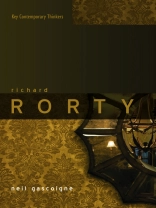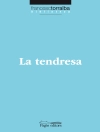Neil Gascoigne provides the first comprehensive introduction Richard Rorty’s work. He demonstrates to the general reader and to the student of philosophy alike how the radical views on truth, objectivity and rationality expressed in Rorty’s widely-read essays on contemporary culture and politics derive from his earliest work in the philosophy of mind and language. He avoids the partisanship that characterizes much discussion of Rorty’s work whilst providing a critical account of some of the dominant concerns of contemporary thought.
Beginning with Rorty’s early work on concept-change in the philosophy of mind, the book traces his increasing hostility to the idea that philosophy is cognitively privileged with respect to other disciplines. After the publication of Philosophy and the Mirror of Nature, this led to a new emphasis on preserving the moral and political inheritance of the enlightenment by detaching it from the traditional search for rational foundations. This emerging project led Rorty to champion ‘ironic’ thinkers like Foucault and Derrida, and to his attempt to update the liberalism of J. S. Mill by offering a non-universalistic account of the individual’s need to balance their own private interests against their commitments to others.
By returning him to his philosophical roots, Gascoigne shows why Rorty’s pragmatism is of continuing relevance to anyone interested in ongoing debates about the nature and limits of philosophy, and the implications these debates have for our understanding of what role the intellectual might play in contemporary life. This book serves as both an excellent introduction to Rorty’s work and an innovative critique which contributes to ongoing debates in the field.
Tabella dei contenuti
ACKNOWLEDGEMENTS.
INTRODUCTION: NO SINGLE VISION.
1. PHILOSOPHY AND POLITICS.
2. ACTOR AND MARTYR.
3. FAR, FAR AWAY….
CHAPTER 1: OUT OF MIND.
1. OUR RORTIAN ANCESTORS.
2. MATERIALISM AND THE MIND-BODY PROBLEM.
3. EXPLICATION, ELIMINATION, AND CONCEPTUAL CHANGE.
CHAPTER 2: WHAT IS ELIMINATIVE MATERIALISM?.
1. INTRODUCTION.
2. ANALYSIS, EXPLICATION AND ELIMINATION.
3. ELIMINATIVE MATERIALISM.
4. INCORRIGIBILIY.
5. TROUBLES WITH ELIMINATISM.
6. FAR, FAR AWAY, LIES….
CHAPTER 3: RORTY’S KEHRE.
1. INTRODUCTION.
2. REALISM AND REFERENCE.
3. SCEPTICISM, RELATIVISM, TRUTH.
CHAPTER 4: OVERCOMING PHILOSOPHY.
1. AFTER PHILOSOPHY?.
2. THE LINGUISTIC TURN.
3. THE FUTURE OF PHILOSOPHY.
4. WHITHER EPISTEMOLOGY?.
5. THE REAPPEARING ‘WE’.
6. IN CONVERSATION.
CHAPTER 5: NEW SELVES FOR OLD.
1. FROM EPISTEMOLOGY TO POLITICS.
2. DEWEY’S REDESCRIPTION.
3. CONTINGENCY, IRONY AND SOLIDARITY.
4. METAPHORLOSOPHY.
5. TWO CONCEPTS OF FREEDOM.
6. LIBERALISM AND THE LIMITS OF PHILOSOPHY.
7. THE LAST IRONIST.
CHAPTER 6: THE WHOLE TRUTH.
1. THE AUTHORITY OF NORMS.
2. THE VIEW FROM NOWHERE.
3. RELATIVISM REDUX.
4. TRIANGULATION.
CONCLUSION: THE ENDS OF PHILOSOPHY.
1. DOUBLE VISION.
2. NOTHING BUT THE TRUTH.
3. THE ENDS OF PHILOSOPHY.
BIBLIOGRAPHY
Circa l’autore
Neil Gascoigne is Senior Lecturer in Philosophy at Royal Holloway University of London.












